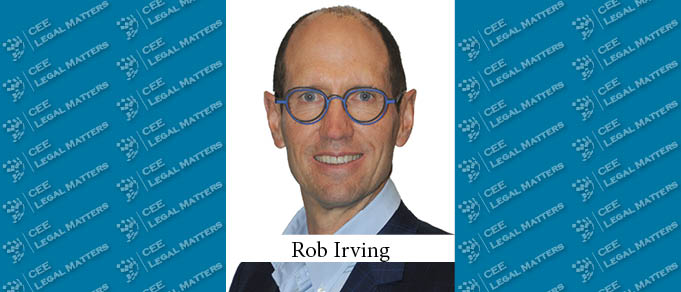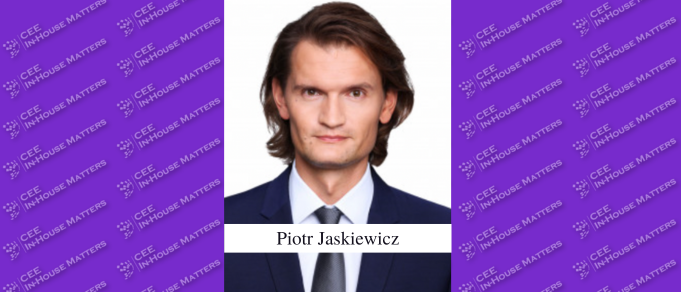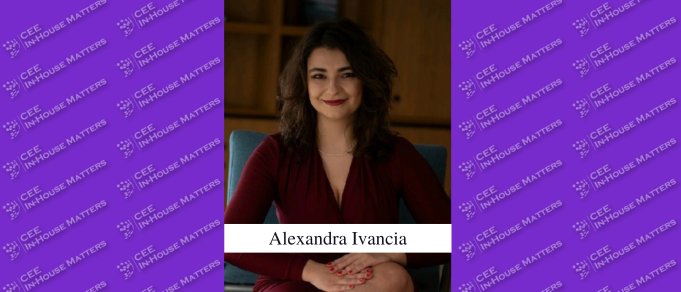Dentons' Rob Irving Talks About The Deal of the Year in Montenegro – 4iG PLC’sAcquisition of Telenor Montenegro from PPF Group.
CEELM: First, congratulations on winning the Deal of the Year award in Montenegro!
Rob Irving: Thank you! I don’t imagine there were too many deals under consideration in Montenegro, but, for us, our SEE practice is a very important part of Dentons’ CEE endeavors. We are routinely present in SEE and very much enjoy working on those transactions and feel that they are an important part of what we can contribute to the region.
CEELM: Can you describe the deal for us and Dentons' role in making it happen?
Irving: There were two phenomena converging here.
Firstly, several years ago, PPF, a large Czech financial holding, purchased the Telenor mobile business in CEE – it was a huge transaction involving several different countries. However, ultimately, looking at things from their perspective – Montenegro didn’t quite fit in the long-term strategy they had for the rest of the portfolio.
At the same time, 4iG, a Hungarian company that was traditionally an IT company, began a process of rapid transformation into a large integrated telecommunications company – both in Hungary and in the region generally. They saw this as an attractive opportunity to take a strong market position.
Those two converged before we were even involved, and there was a principal level agreement on the basics of the transaction between the parties, so our work was trying to implement things, essentially.
Both of these parties are big, strong companies with strong opinions on how to do deals yet, at the same time, they had a good collaborative relationship and were able to work through any issues as they arose. It wasn’t one of the most difficult transactions in that sense, on account of parties being dedicated to working things out between each other, I must say.
CEELM: How did you land the mandate and what do you believe it was about the team that got it for you?
Irving: We have a large office in Prague that expanded quite a bit in the past few years, especially on the corporate and M&A side. We’ve been doing an increasing amount of work with large Czech financial groups investing outbound around the world from the Czech Republic – in the past year, we supported Czech clients on M&A transactions in the US, Mexico, South Africa, the Netherlands, Australia… all out of Prague. So, our operation there is very much an international one.
PPF, with its international holdings, has been someone that we wanted to work with for a while. We built on our relationship with the regulatory, TMT, and IT advice we provided to PPF in various markets – in particular surrounding their investment in the traditional Telenor business. When it came to this particular mandate, they approached us for the transaction.
I think that this is core to what we do – we’ve handled a number of sales throughout SEE, including, around the same time, the sale of the third-largest mobile operator in Albania to 4iG (a deal we hope will be the Albania DOTY for next year). That deal was signed just before the New Year and closed in March 2022.
People approach us for these types of transactions because we are, on the one hand, an international law firm with the ability to work on English and US-law governed transactions. Also, on the other hand, we have a regional team that understands the region and is a bit more flexible in terms of thinking around regional issues.
CEELM: What were the most complex aspects of the deal from a legal perspective? And what were some of the biggest difficulties faced in the process?
Irving: Any time there is a carve-out – be it of a product line, or geographically – there are issues in terms of, for example, IT systems, branding, management services, etc. There are always going to be times during the negotiations when the terms of the carve-out are heavily debated – what gets cut off at closing, what continues for a period after, on what terms… these issues always make carve-out transactions more interesting.
It was much easier, for example, when we helped sell One Communications in Albania – which ended up being a stand-alone business, following its carve-out from Deutsche Telekom a few years prior.
Finally, we were happy we hadn’t run into any issues on account of telecommunications being a particularly regulated sector.
CEELM: In contrast, what, in your opinion, went particularly smoothly and what do you believe contributed to it?
Irving: I don’t want to overplay the lawyers' role in making the transaction go so smoothly. Some of the times you can wrap yourself in the flag and say, yes, we lawyers saved the day – but this wasn’t the case with this particular transaction. The clients were pretty determined to make this work – so it was, overall, a pretty cooperative atmosphere in getting this done – both on the principals’ side and the lawyers’ side.
We had Anthony O’Connor from Kinstellar leading the other side of the negotiations – he is a former colleague, he and I worked together for ten years in the same firm, and he is a good friend. So, there was no posturing going on, it was a very collaborative atmosphere and we all tried to make the legal work run like clockwork.
CEELM: Why do you believe the judges voted for this deal over the others?
Irving: I don’t know how many transactions as large were under consideration from Montenegro in the last year. It is a market that tends to have probably a couple of large, cross-border transactions per year. So, I suspect that might have been at work somewhat.
I can say, however, that there were some really interesting issues of Montenegrin law that came up at certain points that made us delve into it all quite intimately, with, in certain cases, the law working a bit differently compared to some SEE countries. Working on such a large transaction in Montenegro requires a lot of care and attention – which makes me have a lot of respect for Montenegrin lawyers who are required to implement such transactions just because of the demands those complexities place on them.
CEELM: In your view, what is the significance of this deal for the Montenegro/CEE market?
Irving: Getting a dedicated long-term investor like 4iG into the market, who has long-term ambitions with respect to what they seek to achieve – is a big positive.
A lot of large EU and global telecommunications firms have been slowly withdrawing from CEE – you can see this across the board, with telecommunications operators being up for sale in different countries across CEE and SEE. For example, Deutsche Telekom has sold some of its assets in recent years; Telenor, of course; other companies exploring selling assets… so, in this dynamic, to get a long-term dedicated industry investor like 4iG, which has deep pockets, is a strong positive for the country.
CEELM: And do you believe we can expect other similar deals in the near future? Why/Why not?
Irving: I can’t give you any hints – you never want to talk about things which you hear as market rumors, or that you may have been approached on, but I would say that lots of people are exploring opportunities.
People who are interested in expanding – regional players in particular, like Telecom Serbia or Telecom Slovenia that are always on the lookout for regional assets. Furthermore, I don’t know if 4iG is done – there seems to be some room for further expansion – so if further assets come up for sale maybe they'll continue to explore their options. Also, financial investors certainly continue to look for angles.
For example, there is a firm operating across SEE, the United Group, that has consolidated all the way from Slovenia to Greece – they’re private equity-owned, by BC Partners – which continues to make acquisitions.
I would say that the play is looking at where there might be large EU or global groups that own, what is for them, rather small assets, and whether continuing to own those assets and dedicating management time and financial resources to them makes sense, given their global situation. It is prudent, of course, to look at regional players as logical consolidators of these assets.
This Article was originally published in Issue 9.5 of the CEE Legal Matters Magazine. If you would like to receive a hard copy of the magazine, you can subscribe here.

























